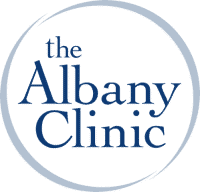PTSD Treatment
What is Post-Traumatic Stress Disorder (PTSD)?
Post-Traumatic Stress Disorder is defined by four cluster of symptoms that include:
- Re-experiencing/intrusion – Reliving the traumatic event through flashbacks, nightmares, and involuntary recurring intrusive thoughts
- Avoidance – Active avoidance of distressing memories, thoughts or feelings associated with the traumatic event, or external reminders that arouse such distressing memories
- Negative alterations in mood and thought – Persistent negative beliefs or expectations about oneself or a persistent negative emotional state that begins with or after the traumatic event
- Marked alterations in arousal and reactivity beginning with the traumatic event – Irritable behavior and angry outbursts, hypervigilance, or exaggerated startle response
For the diagnosis of PTSD to apply, these symptoms clusters are also required to have:
- Occurred for at least one month
- Resulted in clinically significant emotional distress or impairment in relationships with others
PTSD is generally caused by the exposure to, or experience of, a traumatic event. The traumatic event that results in these symptoms can arise from exposure to military combat, sexual violence, or exposure to terrifying or horrifying events. As these symptoms are also associated with anxiety disorders and major depressive disorders, there is a considerable overlap between PTSD and other disorders.
"When I thought there were no other options, The Albany clinic was my last hope. Chronic Depression, PTSD, and an Anxiety Disorder had returned after a several year reprieve. I had been on medications, supported by other medication’s and was feeling defeated. I remember hearing a local physician mention the new “clinic” and with nothing to lose, I made the call. From the moment I spoke with Sylvia - I knew I was in good hands. After my initial consultation with Dr. Garwin, meeting the nursing staff (❤️) and receiving an IV infusion, I experienced IMMEDIATE relief. Coupled with IV infusion therapy Dr. Garwin gave me expectations to meet outside of the clinic that included working with a medication specialist and a therapist — all have made an immense difference in my life."
Current PTSD Treatment Options
Treatment options that are currently available to patients with PTSD are limited. Only two medications, Zoloft® and Paxil®, have been approved by the FDA for the treatment of PTSD. Both Zoloft® and Paxil® are antidepressants that belong to the class of selective serotonin reuptake inhibitors (SSRIs). SSRIs require 6 weeks to 2 months of medication use before their treatment effect can be evaluated. They also have significant side effects such as weight gain, sexual dysfunction, and a slowing of mental reaction time. These factors are the leading causes of failure to adhere to the prescribed medication and, as a result, only 20-30% of patients taking SSRIs for the treatment of PTSD achieve successful remission of symptoms.
Other forms of treatment include prolonged exposure therapy and cognitive behavioral therapy. These therapies help patients understand the mechanisms that underpin their symptoms, and they enable patients to modify their behavior and reactions. These forms of psychological treatments have been shown to be effective in addressing the symptoms of PTSD, but they take repeated sessions with a treating professional and they are often described as emotionally painful, making adherence to these forms of treatment difficult.
Why Choose The Albany Clinic for PTSD?
The PTSD treatment strategies offered by the Albany Clinic include Stellate Ganglion Block and IV Drug Infusion Therapy. In contrast with other treatment options, Stellate Ganglion Block and IV Drug Infusion Therapy have been clinically shown to be effective in the immediate reduction in PTSD symptoms and suicidal ideation.
Due to the overlap of the symptoms of PTSD with those of anxiety and depressive disorders, the Albany Clinic interventions for PTSD are tailored to a patient’s specific symptoms. For those patients whose symptoms are predominantly negative alterations in mood and avoidance of people, places, and events, IV Drug Infusion Therapy may be the preferred approach. The principal medication that we use for IV Drug Infusion Therapy is ketamine. Ketamine has been clinically shown to be highly effective for relieving the symptoms of both PTSD and Treatment-Resistant Depression. If, on the other hand, the dominant symptoms are characterized by heightened reactivity and hypervigilance, a Stellate Ganglion Block is likely the initial treatment of choice, as a Stellate Ganglion Block can reset the sympathetic nervous system to be less reactive. An in-person consultation and discussion will be necessary to determine which intervention is appropriate.






